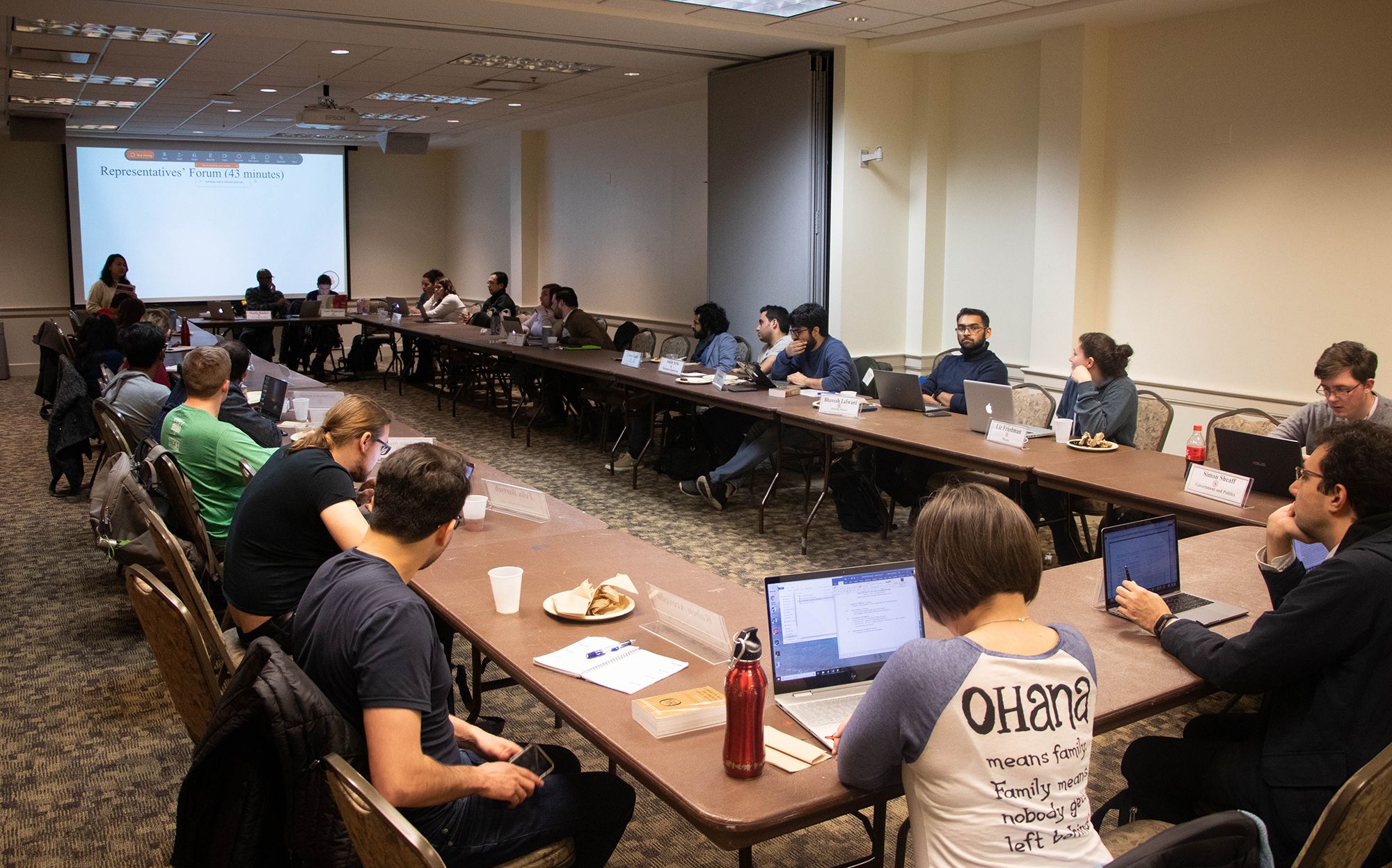The University of Maryland’s GSG will be flush with familiar faces next year.
Six of the body’s nine positions have been filled by graduate students who served in the body this year, according to election results released Monday.
Current Graduate Student Government student affairs vice president Xu Han, who was elected to serve as financial affairs vice president next year, was pleased by this development.
“It definitely will help us for the next year’s work to have so many returning executives,” he said.
[Read more: UMD grad students surprised by sudden failure of collective bargaining bill]
This year’s executive board worked to build trust with stakeholders across the campus and understand the duties associated with their roles. Since many of them will be returning next year, Han said there won’t be as much of a learning curve.
She said she’s excited to build upon the successes the legislative action committee — which she chairs — had this year. Last week, she hosted a political advocacy training session for a “full room.”
Lamb added that next year she hopes to continue working with the Graduate Assistant Advisory Committee on graduate labor issues and start pushing for more state science fellowships with the newly-created science policy advocacy graduate student group.
“All of these things are gaining momentum,” she said.
In addition to Han and Lamb, Annie Rappeport was reelected as GSG president, and Martin Sanders was reelected as the body’s legislative affairs vice president. Binbin Peng, who now serves as academic affairs vice president, will serve as community development vice president next year, and current program representative Kioumars “Q” Haeri will serve as student affairs vice president.
[Read more: UMD’s grad school may hire adviser to help students with health issues, leaves of absence]
New to the group are information management master’s student Abhimanyu Sachdeva, education policy master’s student Asamoah Shakia and information systems master’s student Lovish Mallack. They will serve as academic affairs vice president, diversity and inclusion vice president and public relations vice president, respectively.
Forty-eight graduate students — some GSG rookies, some veterans — will also fill out the body’s assembly.
Some confusion clouded this year’s election cycle, which Peng said she hopes to clear up when she takes over election planning next year. Since graduate students running as program representatives filled in the same nomination form as those running for executive positions, a handful unintentionally nominated themselves as executives.
To solve this problem, Peng said she’ll make two separate nomination forms — one for program representatives and one for executives. She also plans to look into proposing an amendment to the election guidelines in the group’s bylaws to make it so that graduate students must choose between running to be executives or program representatives.
“I will try to make the process transparent, fair and competitive, but fun,” she said.
CORRECTION: A previous version of this story said 32 graduates will fill out the GSG’s assembly, all of whom will represent different programs. 48 graduates will be in the GSG’s assembly, and some programs will have more than one representative. The story has been updated.



